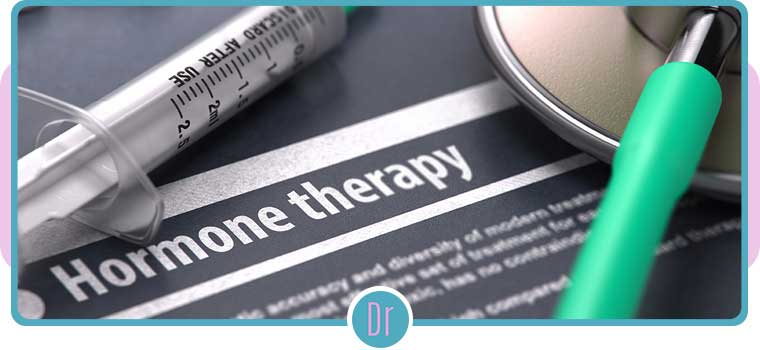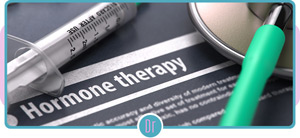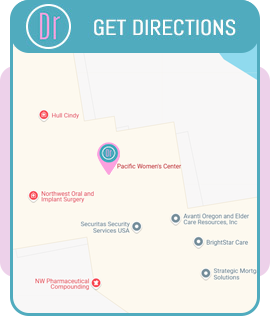Hormone Therapy Specialist in Eugene, OR
Hormone therapy is a medical treatment that can help to manage hormone abnormalities, menopausal symptoms, and certain types of cancer. If you are experiencing any hormonal imbalances such as vaginal dryness, mood swings, and hot flashes, visit Dr. Richard Beyerlein MD, CPI, FACOG, and Tamara A. Stenshoel, MD, FACOG at Pacific Women’s Center to determine the best course of action. For more information, contact us or book an appointment online. We are located at 911 Country Club Rd. Suite 222, Eugene, OR 97401.




Table of Contents:
What is hormone therapy used for?
How is hormone therapy given?
When is hormone therapy recommended?
When is hormone therapy commonly used?
How long does hormone therapy take?
Our bodies are made up of intricate systems that work to maintain an internal balance, otherwise known as homeostasis. The endocrine system, which comprises eight major hormone-secreting glands, regulates many different hormonal balances. In order to maintain this balance, they either release or inhibit the production of certain hormones, each one playing a specific role within the body. If problems occur within the endocrine system, it can result in a wide variety of symptoms, as well as a long list of health complications. Hormone therapy is a treatment that seeks to evaluate, diagnose, treat, and prevent hormone-related problems.
Hormone therapy is used to treat a wide range of different conditions, from diseases to disorders to natural hormonal changes. One of the most common uses of hormone therapy is to treat the symptoms associated with menopause. A normal part of every woman’s life, menopause comes with many changes, starting with the ovaries stopping the release of eggs, as well as reducing the production of large amounts of hormones, including estrogen and progesterone. Hormone therapy is also commonly used to treat andropause, which is the male equivalent of menopause. Andropause is characterized by a decline in the production of male sex hormones, called androgens, such as testosterone. This can lead to symptoms of fatigue, decreased motivation, difficulty concentrating, and increased body fat, among others.
Hormone therapy is also used to treat abnormal hormonal balances within the body, which can either be attributed to an over- or underproduction of hormones, such as hypothyroidism, hyperthyroidism, and hypogonadism. Both menopause and andropause are considered hypogonadism, as they both result in a decrease in the production of hormones secreted from the gonads (testes or ovaries).
Hormone therapy can be given in several different ways, including pills/tablets, injections, and patches. There are pros and cons to each method, and each one may work differently for different people. A hormone therapy specialist will work to establish which method of delivery is best for your situation.
Hormone therapy may be recommended when experiencing the following signs and symptoms:
For women:
• Irregular periods
• Vaginal dryness
• Hot flashes
• Chills
• Night sweats
• Sleep problems
• Mood changes
• Weight gain and slowed metabolism
• Thinning hair and dry skin
• Loss of breast fullness
For men:
• Low energy
• Depression or sadness
• Decreased motivation
• Lowered self-confidence
• Difficulty concentrating
• Insomnia or difficulty sleeping
• Increased body fat
• Reduced muscle mass
• Feelings of physical weakness
• Gynecomastia, or development of breasts
• Decreased bone density
• Erectile dysfunction
• Reduced libido
• Infertility
Hormone therapy is commonly used to treat:
• Menopause
• Andropause
• Hyperthyroidism
• Hypothyroidism
• Cushing disease
• Addison disease
• Acromegaly
• Short stature in children
• Diabetes
• Disorders of puberty and reproductive function
Hormone replacement therapy is a common way to help the symptoms of menopause. Hormone replacement therapy is medication that contains female hormones. You take the medication to replace the estrogen that your body stops making during menopause. Hormone therapy is most often used to treat common menopausal symptoms, including hot flashes and vaginal discomfort.
The entire process of hormone therapy typically only takes about 15 to 30 minutes, depending on patient needs. The duration of the treatment to see full results usually takes about three to six months, with noticeable changes after one to three months. If you are experiencing symptoms related to a hormonal imbalance, come to Pacific Women’s Center for our hormone therapy. Our kind and compassionate professionals are experienced in treating hormonal imbalances and can help correct the symptoms caused by these differences in hormone levels. For more information, contact us today to book an appointment for hormone therapy, or visit our clinic conveniently located at 911 Country Club Rd. Suite 222, Eugene, OR 97401. Our office is open five days a week, from Monday to Thu: 8:00 AM to 5:00 PM and Fri: 8:00 AM to 3:00 PM. We look forward to serving you! We serve patients from Eugene OR, Springfield OR, Coburg OR, Creswell OR, Cottage Grove OR, Lowell OR, and Junction City OR.

ADDITIONAL SERVICES YOU MAY NEED
❱ Abdominal Hysterectomy
❱ Bladder Lift Surgeon Q&A
❱ Cervical Cone Biopsy
❱ Colposcopy
❱ Endometrial Ablation
❱ Endometrial Biopsy
❱ Female Sexual Dysfunction
❱ Gynecological Surgery
❱ Gynecology
❱ Hormone Therapy
❱ Vaginal Hysterectomy
❱ Endometriosis Diagnosis & Care



